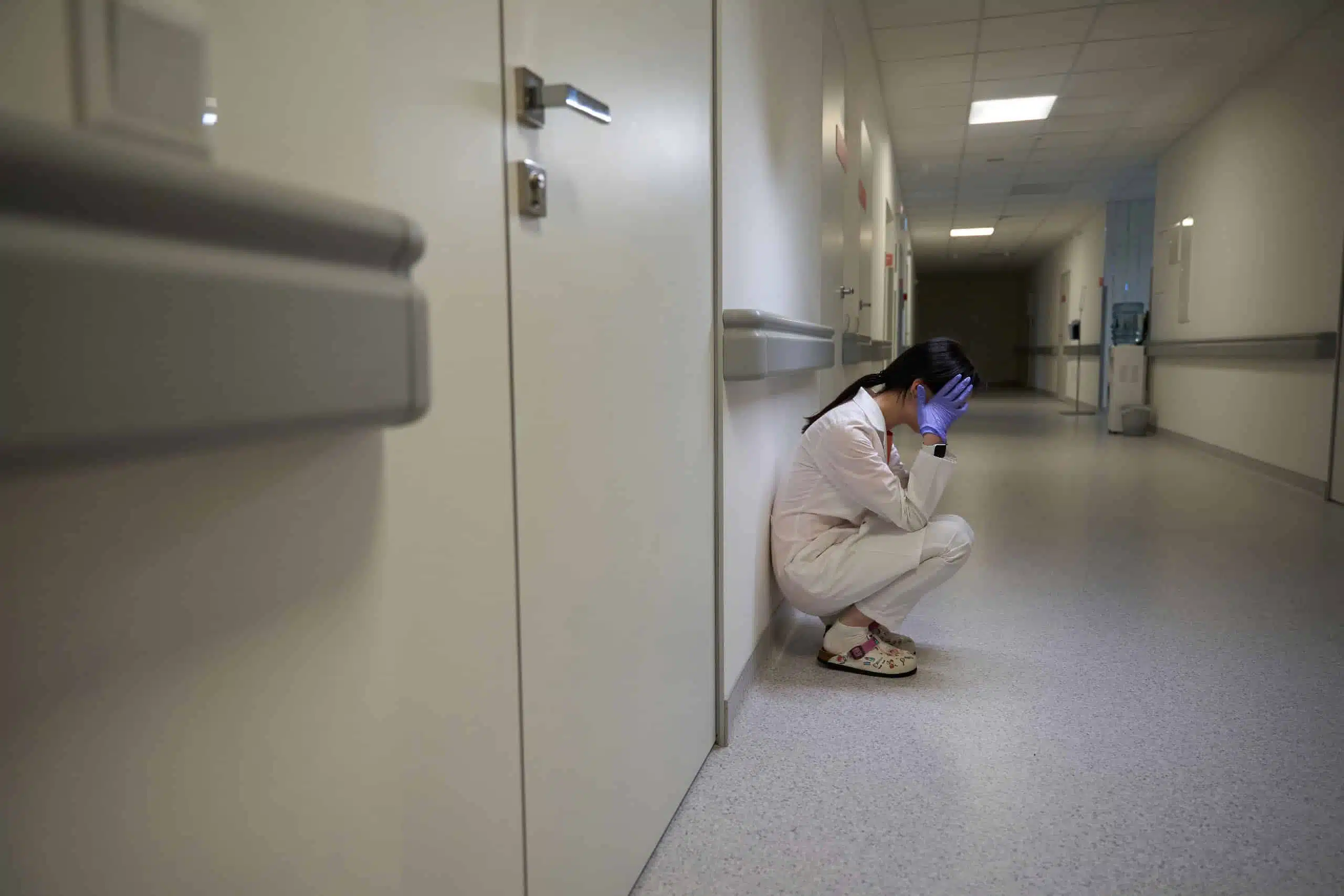Loss
In this section, we will discuss types of loss and how they contribute to types of grief.
Traumatic loss
Some types of death are associated with increased grief and mental health challenges. One of these types, called traumatic loss or traumatic death, has affected many HCPs during the pandemic.2
Some examples of traumatic loss include:
- Death that is unexpected, sudden, or untimely
- Death that includes suffering
- Death that is deemed preventable
- Death or manner of death that is seen as unfair or unjust
- Death of a child
After a traumatic loss, life can seem meaningless, unjust, and unpredictable. There may be a risk factor for moral injury if the loss’s circumstances violate your ethics. It is important to identify your feelings at this time, as grief and trauma may signal a need for wellness support.
Ambiguous loss
The term “ambiguous loss” was first used in the 1970s by a researcher who worked with families of soldiers who’d gone missing in action during the Vietnam War.3 She noticed that these families experienced a different type of loss than families of soldiers who’d been identified as killed.
Today, there are two defined types of ambiguous loss:
- The person is physically missing.
- The person is physically alive but psychologically missing (e.g., living with dementia).
More recently, ambiguous loss has also been used to describe a loss that occurs without closure or clear understanding. It is especially challenging because it leaves the anguished person searching for answers.
Symbolic loss
Symbolic loss refers to losses that are not physical, such as:4
- Loss of identity or sense of self
- Loss of relationship(s)
- Loss of job
- Loss of hopes and dreams
During the pandemic, you may have experienced a symbolic loss of trust, hope, or values. You may have felt that a piece of yourself was misplaced or broken because of your experience. You may have ended personal relationships due to conflicts about COVID.
Symbolic losses often go unacknowledged. But there’s no need to feel guilty, selfish, or silly about mourning losses unrelated to physical deaths. Symbolic losses are valid and must be grieved!
Grief
It is important to know the types of losses because they can impact the types of grief we experience. For example, traumatic loss may be related to traumatic grief. Symbolic loss may be linked to disenfranchised grief. We describe different types of grief in this section.
Anticipatory grief
Anticipatory grief sets in when people realize that death may be imminent. You might have become especially familiar with this type of grief during the pandemic. For example, while heading in for a shift, you may find yourself mentally preparing for the patients you will lose in the coming hours.
Like ambiguous loss, anticipatory grief can be linked to non-physical losses. During the pandemic, you may have grieved the loss of major milestones or life events such as graduations, family reunions, or weddings.
Traumatic grief
Traumatic grief is when trauma and grief happen at the same time. This is very relevant to HCPs working on the frontline, as they may experience grief in direct response to patient suffering.
Some factors associated with professional traumatic grief are:5
- Witnessing multiple losses
- High demand for care
- Work overload
- Witnessing sudden, unexpected death
- High emotional burden
- Lack of resources and supplies
- Lack of knowledge regarding traumatic death
- Lack of or limited social supports
- Anticipatory fear
Traumatic grief can cause sadness, stress, emotional exhaustion, and sleeplessness.
Disenfranchised grief
Disenfranchised grief occurs when a loss is not socially accepted or taken seriously.6 Examples can include a miscarriage or stillbirth, the breakup of a relationship, the loss of a job, or the death of a pet.
This type of grief can be hard because there are fewer rituals and institutional supports associated with it.
Even recognized grief can become disenfranchised grief when well-meaning friends and family set a time limit on your right to mourn, like when they ask, “Why aren’t you over this yet?”
HCPs can experience disenfranchised grief in a few different ways. Some people may expect you to “Just do your job” regardless of the relationship you had with a patient who’s recently passed. You may be told “This is what you signed up for.”
Though healthcare providers are frequently exposed to death, they are rarely trained to deal with the accompanying grief.
Cumulative grief
Grief may become chronic or cumulative when feelings are left unacknowledged or unaddressed. Cumulative loss may contribute to the development of compassion fatigue, burnout, and an over-or-under attachment to patients.
Complicated grief
When grief dominates a person’s life for a prolonged period, it can develop into complicated grief.7 Complicated grief often looks like long-term anxiety or depression but occurs as a direct reaction to loss. Symptoms of complicated grief can include longing for the lost, loneliness, shock, denial, anger, and mistrust.
When you don’t take time to process your feelings about a loss, your risk of complicated grief increases.
Because of the pandemic, many of us have been unable to mourn death in traditional ways, like attending funeral services or going to therapy. This may put us at risk for complicated grief.
